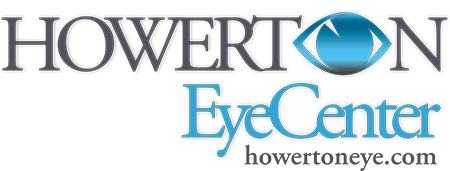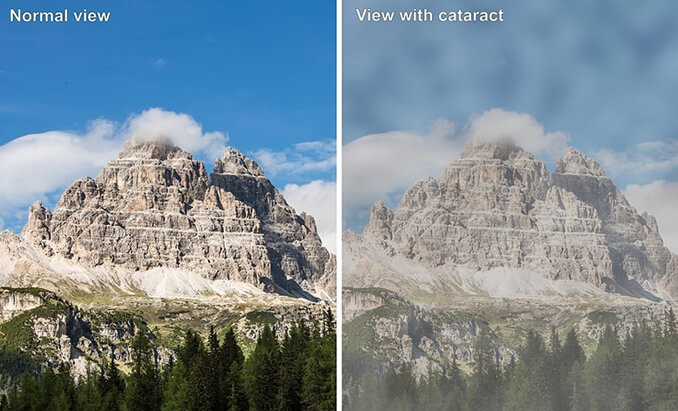Home » Cataract Surgery
Cataract Surgery
What Are Cataracts?
Inside your eye is a natural lens, which can gradually become yellow and cloudy. This loss of clarity is called a cataract and it’s very common. The “clouding” or “browning” of the lens makes images fuzzy and dull and can affect your sight in many ways.
There are a number of cataract symptoms you may experience, including:
- Cloudy or blurry vision
- Difficulty seeing at night; glare or halos around lights
- Difficulty viewing a computer screen, phone, or tablet
- Colors appear dim and faded
- Double Vision
- Frequent change in glasses prescription
What Causes Cataracts?
Cataracts are a natural part of getting older. As mentioned, cataracts usually develop because of aging. However, there are a number of additional risk factors that can cause cataracts to develop more quickly or earlier in life:
- Disease – Glaucoma, diabetes, hypothyroidism, or an autoimmune disorder
- Lifestyle – regularly using tobacco, alcohol, and/or corticosteroids
- Overexposure – to sunlight, UV rays, or X-rays
- Eye Trauma – including eye-related injuries, burns, and surgeries
What is Cataract Surgery?
At Howerton Eye, we aim to help you understand your vision and eye treatment options thoroughly. If you have been diagnosed with cataracts, the solution for correcting your vision is cataract surgery.
During cataract surgery, your eye doctor will remove your clouded eye lens and replace it with an intraocular lens, or IOL for short. This common outpatient procedure will restore your vision tremendously, not only taking care of your cataract problem, but also potentially alleviating presbyopia and astigmatism issues without additional surgery.
Deciding on Your IOL
How do you see the rest of your life? When you visit Howerton Eye for your cataract surgery consultation, you and your eye doctor will want to discuss your vision needs for the future in order to best select the IOL that is right for you. Some questions to consider would be:
- What activities are important to you?
- Do you often use computers or mobile devices?
- What do you do for a living?
- Do you spend time in dimly lit environments?
- Do you prefer to read digitally or in print?
- Do you use eyeglasses to read?
- How do you feel about eyeglasses and contacts?
- Have you been diagnosed with astigmatism?
These questions can help you and your eye doctor decide on the visual range you will need. Visual range plays a key role in deciding which IOL will meet your needs. Continue below for a short summary of the different IOL options available to you and how they relate to different eye treatment conditions and needs.
Schedule Your Eye Doctor Consultation
For many patients, the clarity and color of their vision right after cataract surgery is amazing. Cataract surgery has improved the lives of millions of people around the world and you could be next! This procedure could give you freedom from heavy reliance on eyeglasses and contact lenses, enhancing your quality of life. If you have any questions about cataract surgery, please contact us today. You may also request an appointment for a consultation directly online. The eye doctors and staff at Howerton Eye can’t wait to help you see a difference in your vision!





